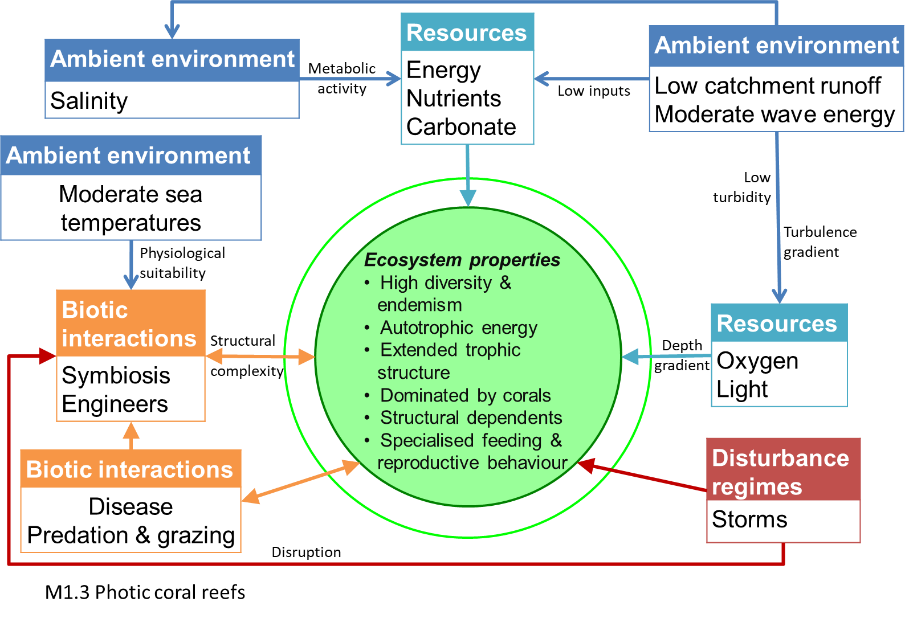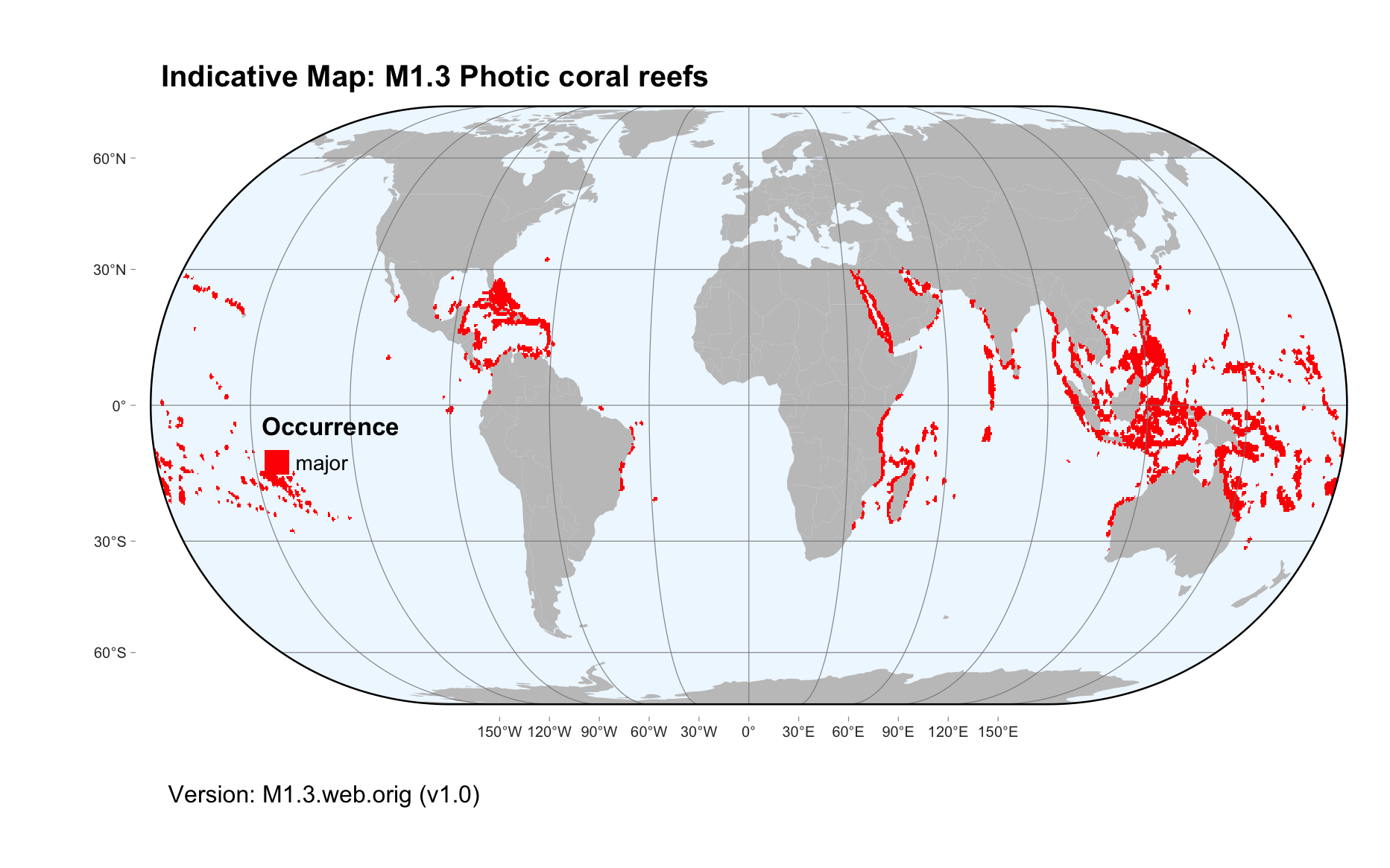Global ecosystem typology
Alternative site for the Global ecosystem typology with additional information for ecosystem profiles and indicative maps.
This site is maintained by jrfep
M1.3 Photic coral reefs
Biome: M1. Marine shelf biome
Contributors:
(texts)
These slow growing biogenic structures are formed by the calcium carbonate skeletons of certain coral species that depend on symbiotic relationships with algae. They occur in warm, shallow, low-nutrient waters and provide complex three-dimensional habitat for a highly diverse community across all trophic levels, from algae to sharks, along with other characteristic sessile organisms like coralline algae and sponges. Niche habitats produce specialist behaviours and diets, like the symbiotic relationship between clown fish and anemones. Storms and marine heat waves drive cycles of reef destruction and renewal.
Key Features
Biogenic reefs formed by hard coral-algal symbionts with phylogentically & functionally diverse biota in clear, warm subtidal waters.
Overview of distribution
Warm tropical & subtropical coastal waters.
Profile versions
- v1.0 (2020-01-20): BA Polidoro; DA Keith
- v2.0 (2020-05-27): BA Polidoro; S Rossi; CRC Sheppard; SN Porter; DA Keith
- v2.01 ():
- v2.1 (2022-04-06): BA Polidoro; S Rossi; CRC Sheppard; SN Porter; DA Keith Full profile available at official site
Main references
Selected references for this functional group:
Sheppard C, Davy S, Pilling G, Graham N (2018) The biology of coral reefs 2nd Edition. Oxford University Press, Oxford
Diagrammatic assembly model

Maps
Maps are indicative of global distribution patterns are not intended to represent fine-scale patterns. The maps show areas of the world containing major (coloured red) or minor occurrences (coloured yellow) of each ecosystem functional group. See general notes on maps.
There are 2 alternative versions of the indicative map for this functional group, please compare description and sources below.
M1.3.IM.orig_v1.0
Datasets
- Corals500m
Map references
Institute for Marine Remote Sensing, University of South Florida (2011) Global Coral Reefs composite dataset Reefs at Risk Revisited project Compiled from multiple sources, incorporating products from the Millennium Coral Reef Mapping Project prepared by IMaRS/USF and IRD.
M1.3.web.orig_v1.0

Datasets
- Corals500m
Map references
Institute for Marine Remote Sensing, University of South Florida (2011) Global Coral Reefs composite dataset Reefs at Risk Revisited project Compiled from multiple sources, incorporating products from the Millennium Coral Reef Mapping Project prepared by IMaRS/USF and IRD.
Check: the Glossary / Profile structure / the public document